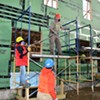Switch to the mobile version of this page.
Vermont's Independent Voice
- News
- Arts+Culture
- Home+Design
- Food
- Cannabis
- Music
- On Screen
- Events
- Jobs
- Obituaries
- Classifieds
- Personals
Browse News
Departments
Browse Arts + Culture
View All
local resources
Browse Food + Drink
View All
Browse Cannabis
View All
-
Culture

'Cannasations' Podcaster Kris Brown Aims to 'Humanize'…
-
True 802

A Burlington Cannabis Shop Plans to Host…
-
Business

Judge Tosses Burlington Cannabiz Owner's Lawsuit
-
Health + Fitness

Vermont's Cannabis Nurse Hotline Answers Health Questions…
-
Business

Waterbury Couple Buy Rare Vermont Cannabis License
Browse Music
View All
Browse On Screen
Browse Events
Browse Classifieds
Browse Personals
-

If you're looking for "I Spys," dating or LTRs, this is your scene.
View Profiles
Special Reports
Pubs+More
Upper Valley Employers Pledge Millions to Build New Homes
Published June 21, 2022 at 3:15 p.m.
Eight companies in the Upper Valley have committed more than $7 million to a fund to help developers build more apartments in New Hampshire and Vermont.
The goal is to address a housing shortage that is making it difficult for companies to find staff and is hurting the economy, said Clay Adams, president and CEO of Mascoma Bank, one of the contributors. The fund will lend at an interest rate of just 1.5 percent over 15 years.
Some of the companies involved, including Mascoma, have a social mission, but Adams said the impetus was economic.
“The housing market is not functioning in a healthy manner, and this is the way these businesses felt they could help create more housing for the employees they need to hire," he said.
 Evernorth, a nonprofit housing and community development organization that serves northern New England, is managing the fund. Evernorth’s goal is to raise $10 million and to have projects identified for investment by the end of the year, said Deb Flannery, vice president of lending at the Burlington-based organization.
Evernorth, a nonprofit housing and community development organization that serves northern New England, is managing the fund. Evernorth’s goal is to raise $10 million and to have projects identified for investment by the end of the year, said Deb Flannery, vice president of lending at the Burlington-based organization.
Evernorth is still talking to prospective investors, and isn’t actively soliciting more, Flannery said. The minimum investment is $100,000. If the fund is a success, she said, Evernorth might start another.
Flannery noted that at such a low interest rate at a 15-year term, the investment is effectively more of a gift than a loan, and will reduce project costs.
The Upper Valley housing project is modeled after others in the U.S. It sprang from talks held by about a dozen area CEOs through Vital Communities, a nonprofit that works to strengthen business and community in several New Hampshire and Vermont towns. The target area for the loans roughly covers 43 towns in Orange and Windsor counties in Vermont, and Grafton and Sullivan counties in New Hampshire.
The region, home to Dartmouth College and the Dartmouth Hitchcock Medical Center, has some of the highest housing costs in Vermont and New Hampshire.
A recent study created by Vital Communities found that the area needs 10,000 new homes by 2030 to meet demand. About 230 units of housing have been added each year over the last 10 years, said Adams.
With businesses limiting their hours and curtailing services because they can’t find labor, he said, it was clear to all of the business leaders that they needed to do more to tackle housing.
“For the past four or five years, we have been bemoaning the fact that there’s a labor shortage,” said Adams, adding that the most common reason that prospective workers give for turning down jobs is that they can’t find a place to live. “This is something we’ve been talking about as employers for quite some time.”
 Dartmouth College and Dartmouth Health are participating in the fund, as are King Arthur Baking Company, the Lebanon, N.H., manufacturer Hypertherm, the Coop Food Stores in Hanover, N.H., Citizens Bank, and Bar Harbor Bank & Trust.
Dartmouth College and Dartmouth Health are participating in the fund, as are King Arthur Baking Company, the Lebanon, N.H., manufacturer Hypertherm, the Coop Food Stores in Hanover, N.H., Citizens Bank, and Bar Harbor Bank & Trust.
The $10 million fund is expected to produce an additional 260 rental homes available for people earning 50 percent to 80 percent of the area median income, or from $13 an hour to $25 an hour. The new housing will be multifamily developments, not individual homes, Flannery said. In return for the low-cost, flexible financing, developers will have to accept deed restrictions limiting how much they can charge for the rental units.
Adams said organizers are aware there are many people looking for housing who earn too much to qualify for those income restrictions, but who can’t afford the housing on the market now. He said adding new apartments will make a difference for everyone who is seeking housing.
“The supply is so constrained that any additional units on the spectrum are going to help,” he said.
The goal is to address a housing shortage that is making it difficult for companies to find staff and is hurting the economy, said Clay Adams, president and CEO of Mascoma Bank, one of the contributors. The fund will lend at an interest rate of just 1.5 percent over 15 years.
Some of the companies involved, including Mascoma, have a social mission, but Adams said the impetus was economic.
“The housing market is not functioning in a healthy manner, and this is the way these businesses felt they could help create more housing for the employees they need to hire," he said.
Related Raising Homes: It Takes a Village to Grow Housing. How Vermont Towns Are Trying to Make It Happen: Locked Out Series, Part 6

Raising Homes: It Takes a Village to Grow Housing. How Vermont Towns Are Trying to Make It Happen
Locked Out Series, Part 6
By Anne Wallace Allen and Chelsea Edgar
Housing Crisis
Evernorth is still talking to prospective investors, and isn’t actively soliciting more, Flannery said. The minimum investment is $100,000. If the fund is a success, she said, Evernorth might start another.
Flannery noted that at such a low interest rate at a 15-year term, the investment is effectively more of a gift than a loan, and will reduce project costs.
The Upper Valley housing project is modeled after others in the U.S. It sprang from talks held by about a dozen area CEOs through Vital Communities, a nonprofit that works to strengthen business and community in several New Hampshire and Vermont towns. The target area for the loans roughly covers 43 towns in Orange and Windsor counties in Vermont, and Grafton and Sullivan counties in New Hampshire.
The region, home to Dartmouth College and the Dartmouth Hitchcock Medical Center, has some of the highest housing costs in Vermont and New Hampshire.
A recent study created by Vital Communities found that the area needs 10,000 new homes by 2030 to meet demand. About 230 units of housing have been added each year over the last 10 years, said Adams.
With businesses limiting their hours and curtailing services because they can’t find labor, he said, it was clear to all of the business leaders that they needed to do more to tackle housing.
“For the past four or five years, we have been bemoaning the fact that there’s a labor shortage,” said Adams, adding that the most common reason that prospective workers give for turning down jobs is that they can’t find a place to live. “This is something we’ve been talking about as employers for quite some time.”
Related Vermont Housing Resources Guide: Locked Out Series, Part 4

Vermont Housing Resources Guide
Locked Out Series, Part 4
By Carolyn Shapiro
Housing Crisis
The $10 million fund is expected to produce an additional 260 rental homes available for people earning 50 percent to 80 percent of the area median income, or from $13 an hour to $25 an hour. The new housing will be multifamily developments, not individual homes, Flannery said. In return for the low-cost, flexible financing, developers will have to accept deed restrictions limiting how much they can charge for the rental units.
Adams said organizers are aware there are many people looking for housing who earn too much to qualify for those income restrictions, but who can’t afford the housing on the market now. He said adding new apartments will make a difference for everyone who is seeking housing.
“The supply is so constrained that any additional units on the spectrum are going to help,” he said.
Related Stories
Got something to say?
Send a letter to the editor
and we'll publish your feedback in print!
Tags: News
More By This Author
About The Author

Anne Wallace Allen
Bio:
Anne Wallace Allen covers breaking news and business stories for Seven Days. She was the editor at the Idaho Business Review and a reporter for VTDigger and the Associated Press in Montpelier.
Anne Wallace Allen covers breaking news and business stories for Seven Days. She was the editor at the Idaho Business Review and a reporter for VTDigger and the Associated Press in Montpelier.
Comments
Comments are closed.
From 2014-2020, Seven Days allowed readers to comment on all stories posted on our website. While we've appreciated the suggestions and insights, right now Seven Days is prioritizing our core mission — producing high-quality, responsible local journalism — over moderating online debates between readers.
To criticize, correct or praise our reporting, please send us a letter to the editor or send us a tip. We’ll check it out and report the results.
Online comments may return when we have better tech tools for managing them. Thanks for reading.
- 1. Vermont Senate Votes Down Ed Secretary Nominee Zoie Saunders Education
- 2. Governor Makes Last-Minute Appeal to Delay Vote on Ed Secretary Nominee Education
- 3. UVM, Middlebury College Students Set Up Encampments to Protest War in Gaza News
- 4. Dog Hiking Challenge Pushes Humans to Explore Vermont With Their Pups True 802
- 5. Scott Official Pushes Back on Former State Board of Ed Chair's Testimony Education
- 6. Help Seven Days Report on Rural Vermont 7D Promo
- 7. Burlington Budget Deficit Balloons to $13.1 Million News
- 1. Totally Transfixed: A Rare Eclipse on a Bluebird Day Dazzled Crowds in Northern Vermont 2024 Solar Eclipse
- 2. Zoie Saunders, Gov. Scott’s Pick for Education Secretary, Faces Questions About Her Qualifications Education
- 3. Don't Trash Those Solar Eclipse Glasses! Groups Collect Them to Be Reused 2024 Solar Eclipse
- 4. State Will Build Secure Juvenile Treatment Center in Vergennes News
- 5. Vermont Awarded $62 Million in Federal Solar Incentives News
- 6. Queen of the City: Mulvaney-Stanak Sworn In as Burlington Mayor News
- 7. New Jersey Earthquake Is Felt in Vermont News











































